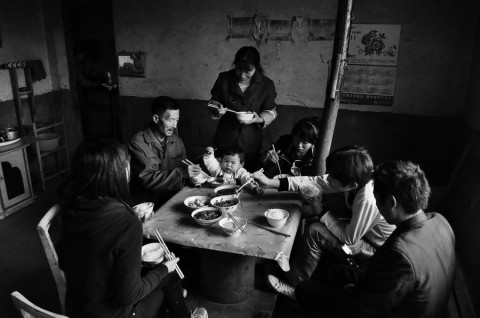Hospitality as Facilitation
October 4, 2013 1 CommentThe origins of hospitality as a sacred and esteemed practice are rooted in providing shelter and safety to the stranger. It is the ancient art and practice of offering your very best to another, with no expectation of reward. Whether you learned this practice in your grandmother’s parlor or at an Art of Hosting workshop, you know that hospitality is the essence of facilitative leadership.
Here at IISC, folks show up for our trainings with excitement and a whole range of human anxieties, fears and emotional needs. That we invite them to step off the edge of what they know and into exploring a new kind of leadership can wind that emotional tension even higher. Because we know this, we pay special attention to the practice of hospitality. We see it as a way to facilitate learning: we create the conditions for people to show up as strangers in need, and meet those needs so well that they are safe to learn and take risks.
To be welcomed at the door of a beautiful place; to be greeted by a serene person who is expecting them; to be offered high quality food, attractively presented; to step into a room where everything is already prepared and waiting just for them…these acts of hospitality let workshop participants know that they are safe, that their basic human needs will be cared for. These moments aren’t just nice things that happen: they are carefully executed acts of welcome. When a participant feels vulnerable or unseen, s/he may ask to have those emotional needs met by the group in ways that can disrupt training or distract the trainer. When a lost document appears instantly before it escalates into a demand, or when a nametag appears at the elbow of someone who is feeling agitated because he isn’t sure he is in the right place, this is hospitality at work. When the participants in the room are sure that we will meet their needs to be safe and supported, they become free to take risks, hear new stories, and learn together.
After a recent training, I witnessed the impact of the hospitality skillfully rendered by my colleagues. Several participants wiped tears from their cheeks while describing the rare experience of having so many of their needs attended to. One woman described how this practice of generosity was integral to what she learned about Facilitative Leadership. It was a joy to witness the hard work of hospitality—work so often unvalued by sexism—be seen, appreciated and understood as the center of the table at which we gather whenever we learn, share and co-create the conditions for new ways of being together.

1 Comment
Thanks for this reflection, Mistinguette. This form of hospitality runs deep in IISC’s bones. I often repeat a offer that was made to me back in 1995 when I was learning to be an IISC trainer.
Nancy Brodsky, the training-for-trainers leader, started the first morning by acknowledging that we all had busy lives and job demands that might make it challenging to be in a five day workshop. So, she said, “I want to know how we can support you to be really be here. Let us know if you need anything!” And she really meant it. That helped me to settle in and sink deeply into the experience. I’ve been enjoying and offering hospitality ever since!